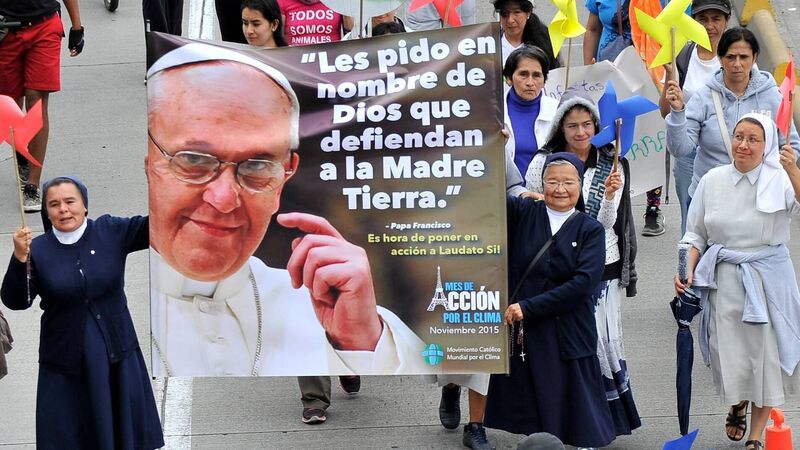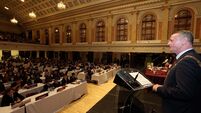Letters to the Editor: Pope Francis saw the big picture, and put climate change in the foreground

Nuns bearing a banner quoting Pope Francis ('I ask you in the name of God to defend Mother Earth') on a march in Bogotá, Colombia in 2015, ahead of Cop21. Picture: Guillermo Legaria/AFP/Getty
Your letter-writer mentions the Pope's choice of burial in the basilica of Santa Maria Maggiore (Pope Francis took on the challenge we all face — striving to be better Irish Examiner Letters to the Editor, April 25).
The legend surrounding the feast of the dedication of this basilica goes back to Pope Liberius (d.366). In a vision to him, Mary, the Theotokos, asked that a church be built where snow would be found on August 5, usually a time of oppressive heat in Rome.











